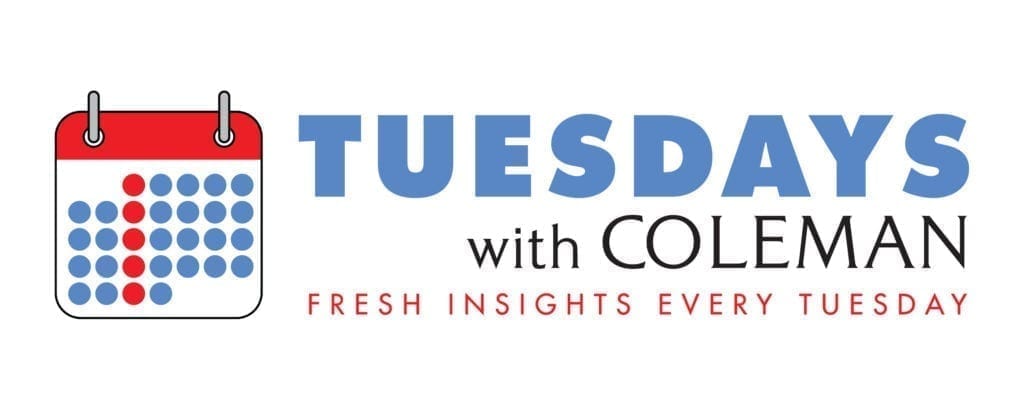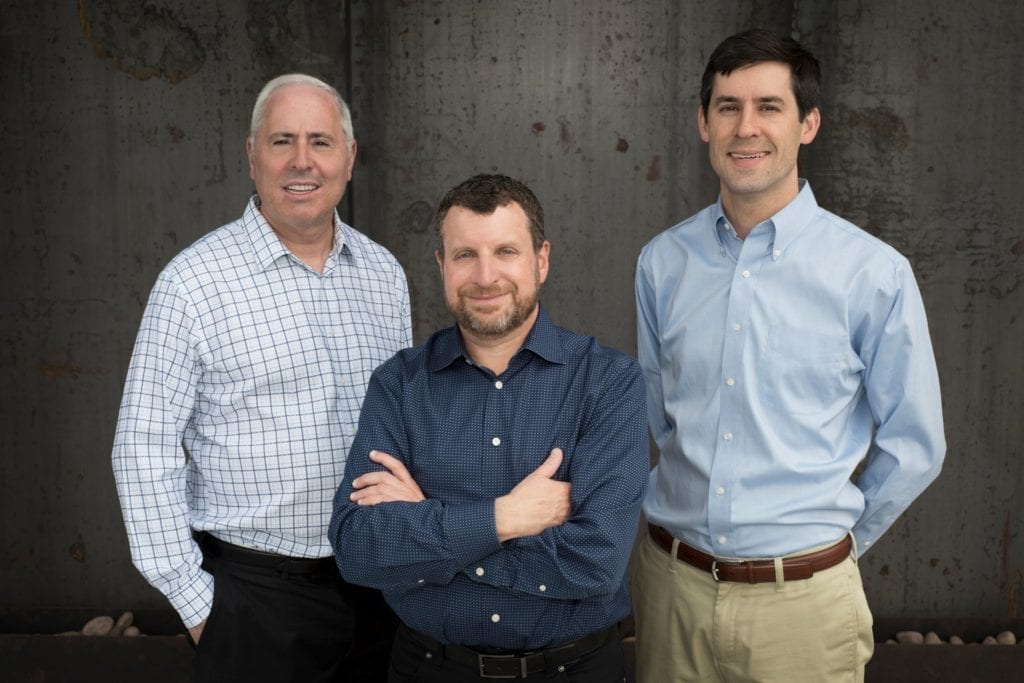
In January 2018, when we last utilized our Tuesdays With Coleman blog to offer our outlook for the coming year, we had no idea how easy we had it. Observing trends in consumer behavior, tastes, and perceptions is our bread and butter and has always allowed us to project future happenings in the audio entertainment world.
That was pre-COVID, and we admittedly approach our look ahead to 2021 with less confidence than we have in the past. We won’t let the uncertainty of our times stop us, however, as our Senior Consultants—Warren Kurtzman, John Boyne, and Sam Milkman—share their thoughts over a roundtable discussion as we begin 2021.

Coleman Insights Senior Consultants (L-R) Sam Milkman, Warren Kurtzman, and John Boyne
This is the first of a two-part blog series in which we focus on the impact of 2020’s upheaval (the social justice movement, the election, the pandemic, etc.) and what it means for how people consume and what they want from audio entertainment.
SAM MILKMAN:
I think before we get too far into this, we should state that we are extraordinarily empathetic to our clients’ challenges and we are thinking anew about those challenges.
JOHN BOYNE:
Yes, we are going to focus on the path forward in the belief that things will get better at some point in 2021. That said, we are not turning a blind eye to the difficulties that many of our clients are facing.
WARREN KURTZMAN:
Which is why we are emphatic that if you are involved in audio entertainment—radio, streaming, podcasting, etc.—you must make sure to really understand the short- versus long-term impacts of the pandemic. It may create the need to reintroduce your brand; it may make you rethink your role in your listeners’ lives.
JOHN BOYNE:
Coming out of the pandemic, things may be different in ways that we can’t anticipate right now. But historically when we have big events, things change. We should be on the lookout for changes that will impact all forms of audio entertainment.
WARREN KURTZMAN:
These changes may not only impact the quantity with which people use your brand, but also how and why they use it.
More broadly speaking, the pandemic will likely cause long-term changes to the way people use audio entertainment and it is incumbent on us to understand those changes. There are many people now just discovering streaming, podcasting, etc. because of the pandemic.
JOHN BOYNE:
Our lives and behavior after all this won’t be the same, even if a lot of things return to pre-COVID normal. A lot of people will be going back to a workplace, but there’s little doubt that the number of people or at least the number of hours worked from home will be much higher than before, and that will have a big impact on how audio is consumed. Obviously, commuting consumption goes down, but there are also opportunities to reach those who no longer commute as they work from home; they have more flexibility and ability to listen to audio when working from home.
SAM MILKMAN:
In every moment, media meets the challenge. Our challenge now is to pivot to the needs of the audience in this new world.
JOHN BOYNE:
For example, music has historically been influenced by societal changes. What will music look like in 2021 and even 2022? There is a sense that contemporary music across many genres was not very strong heading into the pandemic and then so much stood still in 2020; does that put us on the precipice of something big? Is there a new genre that will emerge? We don’t know right now, but more than ever, we should keep our eyes and ears open for the next big thing.
SAM MILKMAN:
Some of the best Rock emerged from protesting the Vietnam War; Rock in general was a rejection of the way things were previously. That’s what made it cool.
JOHN BOYNE:
Grunge emerged in the early 90s with a grittiness that seemed to be a direct and jarring counter-response to the glitz, glam, and excessiveness of the 80s. Of course, also around that same time, Hip Hop’s explosion seemed to reflect young people’s hunger for something real and authentic.
SAM MILKMAN:
Who is going to take all that has gone on between the social justice movement, the economic distress so many are in due to the pandemic, and the political polarization of our times, and wrap that up and speak to this generation in music?
WARREN KURTZMAN:
Music outlets are clearly responding to aspects of the social justice movement—for example, there have been very public efforts to feature more artists of color on Alternative radio stations and streaming channels and CMT launched an important campaign to highlight female Country artists—and it will be interesting to see if their responses have measurable impacts and capture the essences of the movement.
JOHN BOYNE:
You can envision something coming out of this that is different from what we’ve had before.
SAM MILKMAN:
I remember how there were certain songs or sounds that lost relevancy when the planes hit the World Trade Center on 9/11. There is going to be some artist or sound that will fall completely out of bed because of what’s going on.
JOHN BOYNE:
Speaking to 2020 has been one thing; it’s mostly been heavy for obvious reasons. But speaking to 2021 could be completely different, especially if the vaccine rollout gets done early in the year and we emerge from lockdown. People may want crazy, mindless fun in that case. But, if there’s still a great deal of economic challenges or the pandemic doesn’t end as soon as we hope, people may want something very different.
SAM MILKMAN:
Finding the right tone or voice with our audience is crucial right now. Our brands must reflect the new reality not just in the music we play, but in our take on the world. How we say things. How we package things.
Next week, our roundtable discussion will cover nonmusical content, podcasting, and the need for thoughtful innovation.
